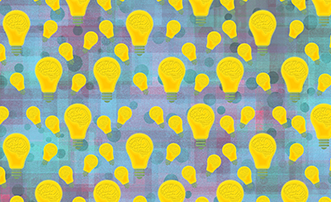Advocacy is a wonderful way to make our voices heard, help those around us, and show support for a cause we are passionate about. This is especially true in situations when the people or causes we are advocating with may have a condition that, in time, could limit their ability to speak for themselves, such as with a type of dementia. You may be wondering though, how exactly do I advocate for myself and loved ones? What does that mean? Let’s explore this topic more.
What is advocacy and why do it?
Webster dictionary defines advocacy as the act or process of supporting a cause or proposal (2023). However, it is often so much more than that! Advocacy helps us make sure that our rights are being supported and shapes the world around us in ways that we would like to see. It is standing up for what we believe in. There are so many ways to advocate.
How to get involved
Advocacy takes many shapes and forms. There are ways we may already be an advocate without even realizing it! Voting is a way of advocating. When we speak up about not getting the correct change back or letting others know that we do not like something, those are also ways we advocate. If we or a loved one is living with a type of dementia, advocacy makes a very big impact, and there are a variety of resources to explore and ways to get involved.
One way to help advocate in our home area is by connecting with local officials. USA.gov provides everything we may need, including names and contact information for local representatives, all the way to the President of the United States. That information allows us to call, write, or even email representatives about our concerns and changes we would like to see happen.
There are many resources if we are advocating for dementia causes as well. The Alzheimer’s Impact Movement, or AIM, works on advocacy with policy makers to help support folks with Alzheimer’s Disease, dementia, and their caregivers. They have tools to help us depending on the time we have available. Some examples are signing a petition, volunteering, or speaking directly with representatives at the state capital.
The National Council of Dementia Minds is a group of people living with a type of dementia who work on advocacy as well. Their mission is to develop and support persons living with dementia who would like to be self-advocates. They work on creating opportunities for people living with dementia to share their experiences and educate the public.
Working on dementia advocacy locally is also important and starts with each of us! The Wisconsin Department of Health Services has a Dementia Care: Building Dementia Friendly Communities Toolkit. This toolkit has information we can use to help educate those around us on what dementia is, how to be more supportive, and ideas for building up a dementia friendly community. Here at ADRC, we also have programs to help get involved. Our Purple Angel and Dementia Friends programs provide training for organizations, neighborhoods, and schools at no cost to them! We are always looking for places to train as well as trainers and would love to hear from you. This is just the tip of the iceberg, there are many ways to get involved and resources to do so. The important thing is that we have our voices heard!
Sources:
alzimpact.org
dhs.wisconsin.gov/dementia/communities
usa.gov/elected-officials
dementiaminds.org




